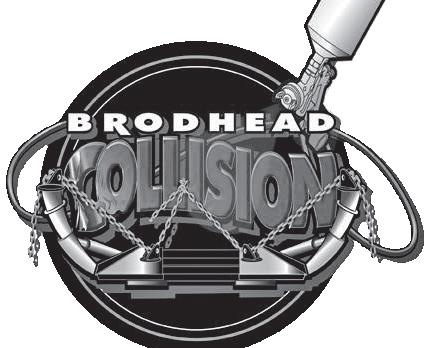
6 minute read
Considerations when deciding to go solar
By Hilary Fiene STATELINE SOLAR, CHIEF OFFICE MANAGER
Have you noticed more and more solar photovoltaic (PV) systems in your neighborhood or community? More households and businesses are making the switch to renewable energy due to the variety of federal and state incentives available; making for a quick and valuable return on investment. As a local solar company, Stateline Solar would like to share some things to consider when deciding to go solar. We understand this is an upfront expensive investment, so we would like to equip you with the knowledge necessary when making to switch to renewable energy and what to look for if you are collecting multiple bids.
Advertisement
Reputation
In a fast-growing industry like solar energy, it’s important to know the reputation of the company you’re dealing with. Outof-state or new solar companies might be showing up in the marketplace, but that doesn’t mean they will necessarily offer the best service or be around long enough to support and service their product years from now.
Selecting the right solar company to work with is an important decision. Solar equipment is built and warrantied to last 25-years on average, so going solar is a longterm commitment. Look for stability in your solar installer. You’ll want to find a company that has developed a great reputation over a number of years with a long track record of satisfied customers.
If possible, request the solar company provides you with a couple customers you can contact that already have been serviced with a solar PV system similar to the one you plan to have installed. Hearing directly from customers of the company is the best way to see how that solar company interacts and services their customers.
System options
When deciding to go solar, you will want to take the variety of technology and components into mind when making your decision. Your solar PV system can be tied to the existing electrical grid (also known as grid-tied) or tied to a battery system to be off grid.
Be aware, the equipment for these two types of systems differs and will also be reflected in the price of the solar PV system and the equipment associated.
Some solar PV systems generate power more efficiently than others, depending on their design of the system, the location of where the system is placed, and the type of materials used to make up the system. Be sure to ask questions such as if the solar PV system has power optimizers or remote monitoring capability to ensure the system is producing energy to it’s full potential. These added solar components might be what sets the prices apart when comparing bids, but the overall return on investment of the system will be met sooner when the solar PV system is generating more efficiently to offset your power bill costs.
When considering a solar company, ask them about the warranties on the solar equipment they install.
A majority of solar equipment has a 25year warranty, meaning you will be investing in a long-term solar PV system. In addition, ask what type of workmanship warranty the solar company offers.
Overall, look closely at the math, and pick the solar PV system that gives you the best return for your money. Many systems will pay for themselves over a number of years, so choosing one to be installed by a wellregarded company can be a wise financial move.
Other services
Homeowners and business owners will often want more than just solar panels installed; such as a battery back-up system or electric vehicle (EV) charging station that can be tied into the existing solar PV system. It is important to choose a solar company that has a wide range of services such as these. A common myth is that solar energy systems mean you will have power even when the grid is down. This is not true unless you have a battery back-up system paired with your solar PV system.
Battery back-up systems are great for those who want the capability to be off-grid, but take into consideration the price of these systems when you compare bids.
In addition, heavily take into consideration what you want powered by your battery or batteries during a power outage. Battery back-up systems have to be sized to what your desired usage of the batteries and what you want versus need powered during a power outage.
With technology ever changing, EV are becoming more and more common, so to have the ability to pair your solar PV system with an EV charging station is a huge bonus.
From a business owners standpoint, an EV charging station at your business could serve as a financial opportunity as well. Some EV chargers can be paired with a pay per charge structure, so you could entice people to come to your establishment to charge their vehicle while that utilize your services. This tactic has been seen and proven financially ideal for places such as hotels/motels, restaurants, grocery stores, retail stores, and golf courses. When taking advantage of this financial opportunity, the EV charging station pays for itself in no time!
Electric vehicle charging stations and battery back-up systems can be installed after an existing solar PV system has installed, so if you decide not to do it now, you can still do it down the road. Keep in mind, you might require an addition to your solar array; however, if you decide to add solar later, so it never hurts to ask for a solar bid with these added components when you make your initial solar bids.
Incentives
The solar company should be familiar with all of the state and federal incentives available to you, and be able to provide you with all of these details. State incentives vary from state-to-state, so depending where you live, the solar company should be able to share what incentives potentially apply to you. Your solar PV system could be eligible for the federal incentive called the Investment Tax Credit (ITC), which is a tax credit in the amount of 30% of your solar PV system cost. It is encouraged to consult your financial advisor or tax preparer to verify if you qualify for the ITC.
Depending where you are located, you could be eligible for utility net-metering. Your solar company should be fully educated on net-metering and be able to tell you if this great incentive applies to you.
If you are looking for solar on your business, there are a variety of additional incentives you could be eligible for, including grants and depreciation of the solar equipment.
When looking to go solar, ensure you discuss this with your financial advisor and/ or tax prepare to verify what incentives apply to you to ensure you have an accurate idea of what the return on investment would be going solar.
Purchasing options
Lastly, the solar company’s you contact should be able to provide you multiple financing options to ensure you are financially able to make this investment. There are three ways buyers typically purchase their solar PV system:
Paying Cash: The simplest and most direct way of paying for your system is by being a cash buyer. This route will allow you to be eligible to receive both the state and federal incentives to help offset the cost.
Loans: Both home equality loans and unsecured solar loans may be available to help you purchase your system. Some solar companies have partnered with local banking institutions to provide solar financing. Home equity loans may have the benefit of letting you deduct the interest from your income taxes.
Leases: Some solar companies lease your solar PV system with little to no down payment or upfront costs. A solar lease will let you make affordable monthly payments to your existing utility bills. You will not outright own the solar PV system and will have a lease term length. With lease systems, you usually do not receive the state and federal incentives; those incentive funds are absorbed by the solar company.
After sharing all of this knowledge, all of us at Stateline Solar hope you have a better idea of what to expect when going solar and we are readily available to be a resource to you on your renewable journey. It is a large investment upfront so take your time in deciding and make sure solar is right for you. If you would like to contact a team member at Stateline Solar, you can call 815-580-3011.





Footville Rock & Lime: Your source for limestone, decorative stone
When you need limestone or other natural materials, the very best place to get them is straight from the quarry in Wisconsin. When you choose Footville Rock & Lime Corporation, that’s exactly what you’ll get: superior quality materials, provided by an honest company.
Whether you need agricultural lime for your soil treatment or are improving your residential landscape with quality stone materials, we’re here to help. We’ll even help you spread your rock to make sure it’s applied perfectly. Our full offering of products includes crushed limestone products, agricultural limestone, decorative stones, mulch, sand, dirt, driveway gravel and more.








